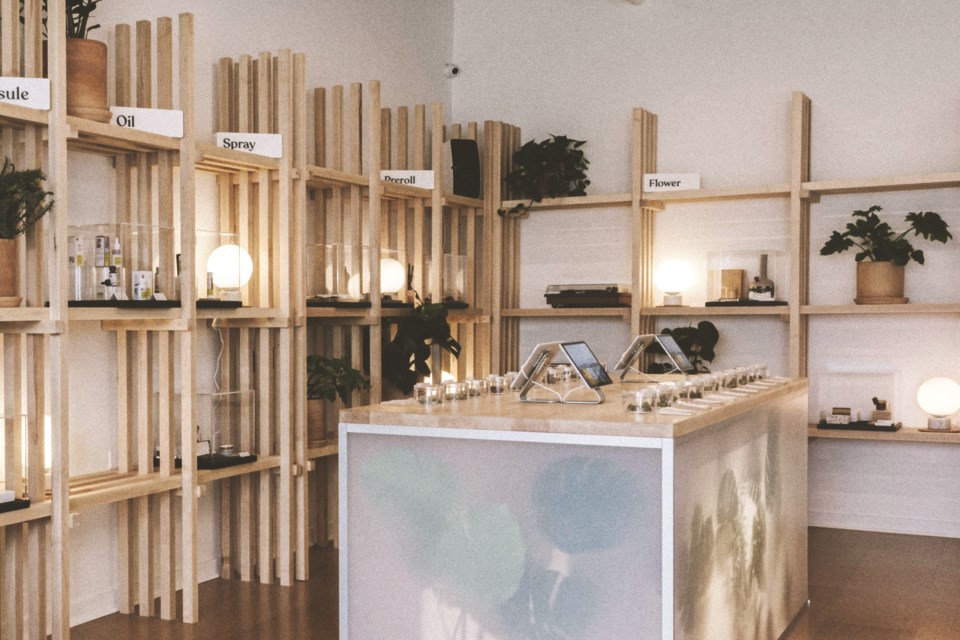Harrison Stoker considers himself a cannabis realist.
After three years working in the recreational cannabis sector, the former Whistlerite is quick to dispel any misconceptions about the sector’s profitability.
“The reality of the industry is that it’s a real grind, just like hospitality and retail, but with a tremendous amount of regulatory framework that can be incredibly challenging, not only to do the work but to make money,” he said. “As a realist, this is not a money tree to be planted in Whistler’s backyard. There’s no such thing.”
Stoker is a co-founder of the Whistler Village Beer Festival and current chief growth officer for the Donnelly Group, which operates 16 cannabis retail stores in B.C. and Ontario through its Dutch Love brand. He is also well-versed in the Resort Municipality of Whistler’s (RMOW) recently finalized cannabis retail policy, having been involved in the municipality’s consultation with both the industry and public.
As previously reported, the RMOW’s policy includes a lengthy list of approval criteria on top of provincial and federal regulations for prospective applicants, with favour given to applicants for things like: providing a living wage and housing to staff, committing to climate leadership and pursuing Whistler’s community health and social strategy goals. Favour will also be given to locally-based applicants and those who partner with the Lil’wat or Squamish First Nations.
Stoker called it a “burdensome” process when compared to jurisdictions such as Vancouver, where Dutch Love counts five stores, with the City employing “more of a free enterprise-style process, whereas Whistler is built on these merit-based applications,” he said.
For his part, Stoker said he generally agrees with the approach, particularly the RMOW’s decision to cap the number of pot shops in town at five.
“I think the location cap in Whistler is really important, because we don’t want to see any undue saturation. We’ve observed that in other markets, most notably in Alberta and Ontario, so I think that was a smart way to position it,” he noted. “But there are more hoops to jump through in that application process. There’s more work to be done in that application, but I think it’s worth it.”
For prospective retailers, Whistler’s true appeal isn’t necessarily the potential financial windfall that could come from operating in the resort, Stoker said, but the opportunity to build brand recognition over the long-term.
“What’s really interesting when you think about Whistler as this global destination, there’s tremendous opportunity to build a brand,” he said. “If you’re in it for the long run, Whistler is a phenomenal place to build a brand and potentially scale a business up down the road.”
But building a brand takes time, and the RMOW’s decision to approve retail applications via three-year temporary-use permits (TUP) could present significant barriers to that goal.
“When you think about the investment in time, energy and notably money in building out a store like this, the prospect of it not being renewed after three, or even six years is a massive risk,” he said. “It’s a little bit counterintuitive to traditional commercial real estate. Typically, you’re creating a five- if not 10-year lease agreement, and that’s a legal contract you’re very much bound to. So, if after three or six years, a licence isn’t renewed and it’s out of your hands, you’re still left with a significant amount of term on that contract that you’re responsible for. The risk is tremendous.”
The silver lining to the RMOW’s onerous approval system is that it “really encourages applicants to take it very seriously,” Stoker added. “Being a resort municipality, they’re really trying to choose the right candidates that fit all those profiles. At the same time, this is brand new to everybody at the RMOW and they have no direct experience in how it works. So is it a divine policy? No, not necessarily. We’ve been through it all and we would’ve written it a bit differently, but I think it’s a smart approach.”
In Stoker’s mind, the relative uncertainty around TUPs drives home the importance of ensuring successful applicants have the appropriate experience both in retail generally and in cannabis specifically.
“It will be really interesting because clearly the locals, the Whistler community, are rooting for local businesses, and I totally agree with that. But these are also people that are getting into incredibly vulnerable positions. They may or may not have [cannabis] retail experience, let alone overarching business experience,” he said. “Hopefully what the RMOW does is balance some really strong, sensible local applications in order for them to open stores against some candidates that have a deeper history of business experience, because it’s a grind, long-term. It requires a tremendous amount of diligence to operate these things properly.”
When asked in a recent interview whether favouring applicants based on their place of residence or ethnicity goes against free market principles, Mayor Jack Crompton said the criteria included in the cannabis policy align with the guiding principles of Whistler’s Official Community Plan (OCP) that was updated in 2020.
“Council cannot refuse to consider applications submitted by particular applicants, but they can and should use the clear direction in the OCP to inform decisions,” he explained. “It has criteria in it that clearly states successful applicants will present the values of reconciliation in successful applications.”
In a follow-up statement, Crompton clarified that the OCP provisions that “commit the RMOW to pursuing inclusion of the Lil’wat and Squamish Nations in local business opportunities are general in scope,” while the criteria in the cannabis policy “is a specific application of that commitment to the Cannabis licensing process.”
Crompton also noted he wasn’t aware of any interest expressed by the Nations to launch or partner on a cannabis retail store in Whistler. At the Nation’s request, Pique sent a Lil’wat spokesperson a list of questions related to cannabis retail last week, but did not receive any responses by press time.
For more information on Whistler’s new cannabis retail policy, visit whistler.ca/cannabis.




